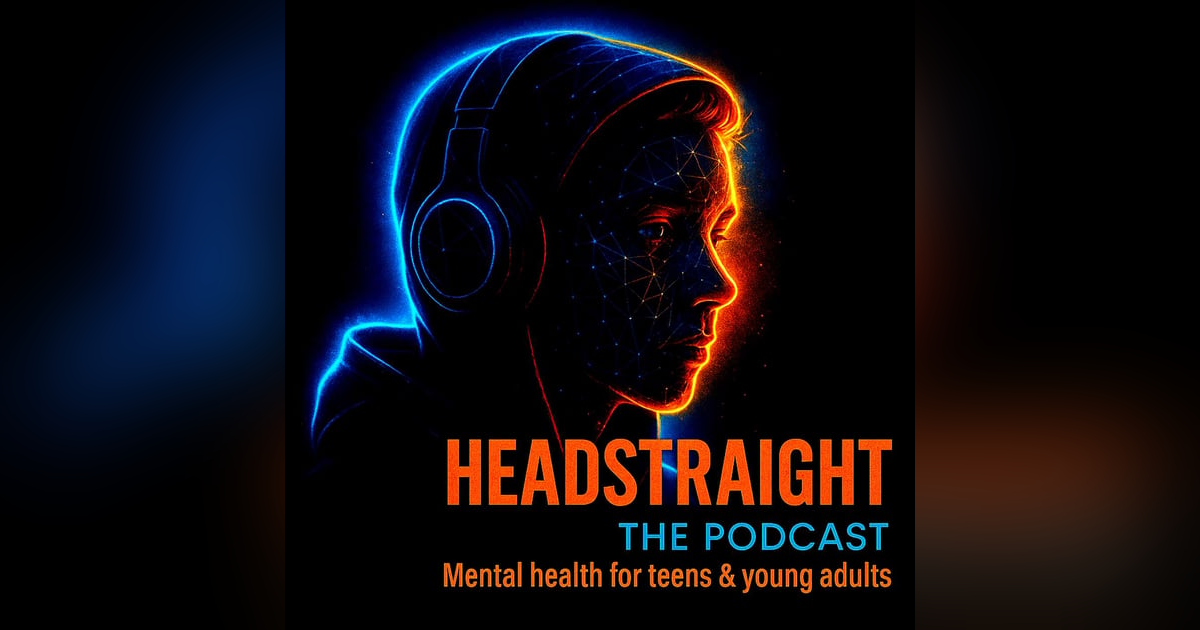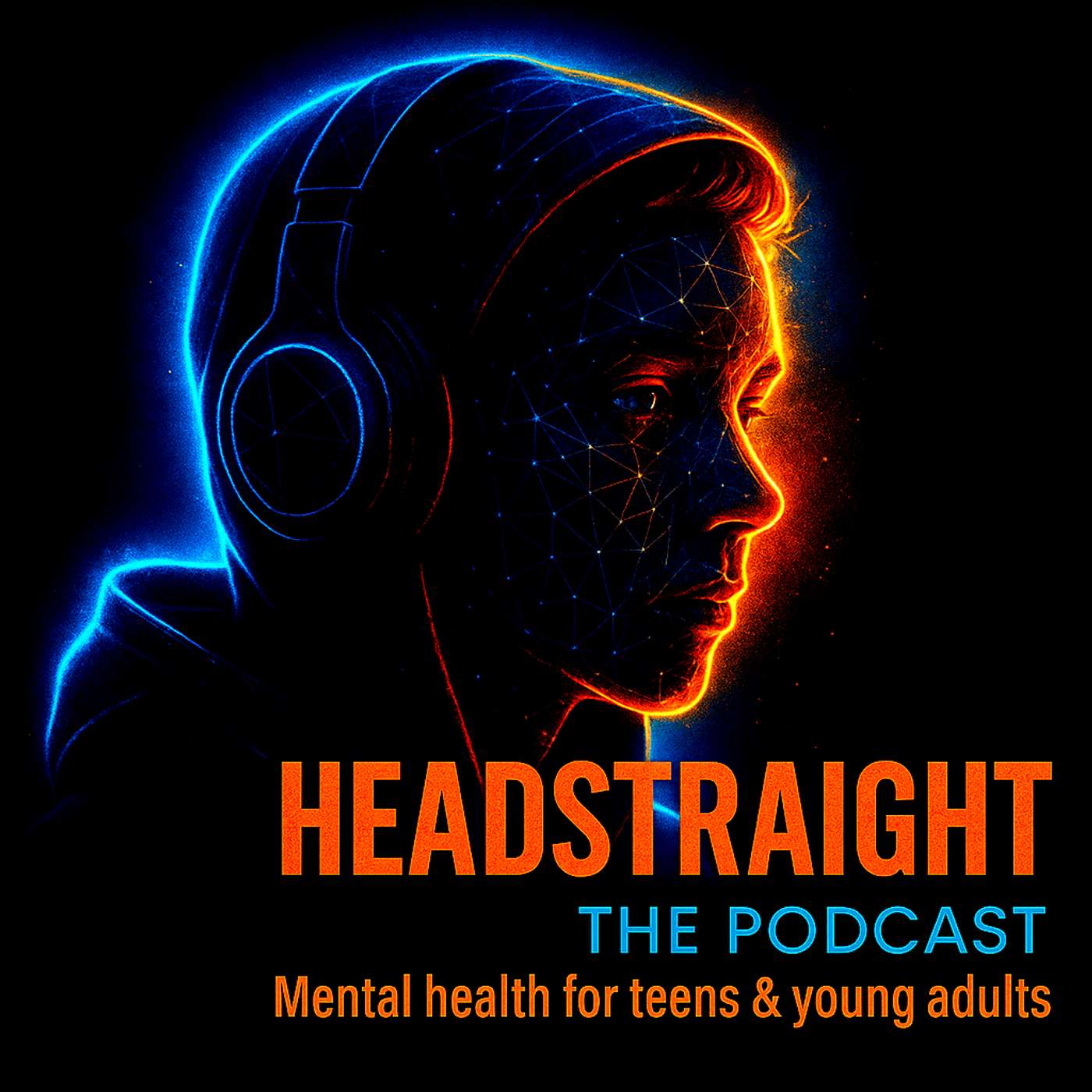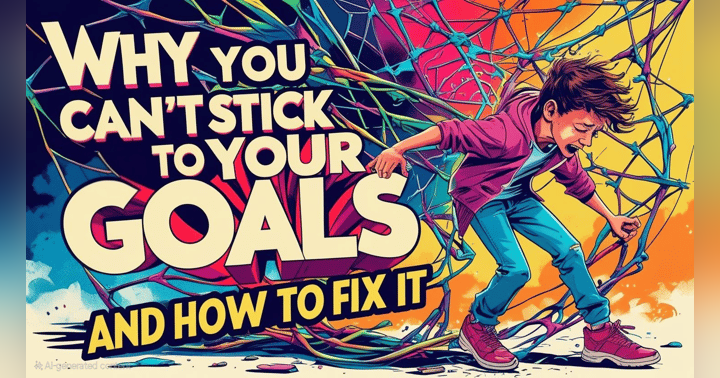Tired of Failing Your Goals? Try This Instead.


You set a goal, feel fired up, and then bam—three days later, you've lost motivation and slipped back into old habits. Sound familiar? You’re not broken or lazy; you’re battling a brain wired for safety, not change. In this episode of Headstraight, a teen mental health podcast, we deliver real talk mental health strategies to support teens struggling with motivation, self doubt, and emotional wellbeing.
Discover how to make better choices that stick by starting smaller than small, building self-control through micro-steps, and creating real systems that protect your emotional wellbeing when life gets messy. We explore common challenges teens face, including all-or-nothing thinking and guilt trips, and offer practical advice on how to reset without shame and stop self-sabotage.
If you need support for teens navigating the cycle of losing motivation, this episode is your chance to gain honest guidance and tools to reclaim your teen mental health and keep moving forward—no matter the setbacks.
Want the Cheat Sheet for this episode..? click the link or copy and paste the following into your browser: https://docs.google.com/document/d/1GNFrfdcTqdc421f8ezrVvuD9HTxI_12x/edit?usp=sharing
Got something to say? - come send me a message at www.headstraight.co.uk/contact/
or send me a voice note at www.headstraight.co.uk/voicemail/
Click here if you want more info about the host
If you need more information about helplines, services or what do to if you're in a crisis, take a look at our resource page: https://www.headstraight.co.uk/resources
Mark:
My name's Mark, and you're listening to Head Straight. Hello, you lot, and welcome back. Nice to see you on the first episode of season two. But let's not mess about. Let's get right into it.
Mark:
Have you ever set a goal that feels good for, like, three days, and then suddenly you find yourself back in your old habits? One missed day turns into five, the motivation fades, and soon the voice kicks in. You've blown it. What was the point of that? Sound familiar?
Mark:
You're not the only one. One of the biggest frustrations I hear is this. I know what I want, but I just can't stick with it. Now if you were here for season one, you'll know that we didn't pull punches. We went deep into what drives your behavior when you're anxious, overwhelmed, or stuck.
Mark:
We talked about guilt, fear, control, boundaries, all the stuff that's under the surface. Now that was about understanding yourself. This season, it's about moving forwards from awareness to action, and there's no better place to start than here with goals. Now last season helped you to spot the deeper patterns, like how self doubt doesn't just show up in your thoughts. It hijacks your choices.
Mark:
We also took a look at how unspoken guilt can keep you in people pleasing, how fear can push you into freezing or shutting down, how playing small can often feel safer than taking up space. And now in season two, we're gonna shift gears. You've got that awareness. Now it's about building the tools to act in spite of it. This episode is where we start to make the shift.
Mark:
Because there's a big difference between knowing your patterns and changing them. But here's the first myth I wanna break for you. You don't have a motivation problem. So let's clear this up right now. Motivation, it's that exciting giddy I'm gonna change my life energy.
Mark:
It's loud, it's fast, and it just doesn't last. Your brain isn't built for motivation. It's built for survival. That means safety, routines, predictability. So when you try to make a change, your brain isn't saying, boy, that's a bad idea.
Mark:
It's saying that feels unfamiliar. This might be risky. And then it'll do whatever it can to pull you back into the comfort zone, even if that zone is low case self destructive. This is why you feel excited at first, then exhausted. You're not lazy.
Mark:
You're not broken. You're trying to act differently with a brain wired to keep you the same. So if you're relying on motivation alone to push through, you're just gonna set yourself up to fail. Now the second trap, and this is the classic one. You decide, right, new me.
Mark:
I'm getting up at 6AM. Gym, revision, green juice, mindfulness, the lot. And maybe you nail it for two days, then real life hits. School deadlines, family stress, hormones, sleep. And because you've gone all in, the moment you can't keep the whole thing up, it feels like a failure.
Mark:
But it's not. It's not that you're weak. It's that you didn't build it to last. You didn't build in the messy middle. The tired days, the low days, the I can't be bothered days.
Mark:
And this is where we link back to season one episode two, where we unpacked how your emotional state influences your actions. When your brain's stressed or overwhelmed, it doesn't want goals. It wants escape. And if your goal is too rigid, too unrealistic, too much all at once, you'll escape from that too. So let me tell you what works.
Mark:
Smaller than small. Now here's where most people zone out because it just doesn't feel exciting. But excitement doesn't build habits. Safety does. So start small.
Mark:
So small that it feels pointless. That's how to get past the brain's threat radar. You don't build confidence by going hard. You build it by keeping promises to yourself, even the tiny ones. So think one line in your diary, five minutes of stretching, reading one page.
Mark:
And here's the key. You need to do it consistently. Consistency teaches your brain that it's safe to try, that you don't need to go into shutdown or panic to survive change. So I just wanna stop here for a second and ask you this. What's one goal that you've set in the past month?
Mark:
Now shrink it down to something so small that it's impossible to fail. How does that version feel in your body? Less pressure? Less dread? That's the version you stick with.
Mark:
That's where trust starts. Now here's a really important point. You need to know your why. Because if your goal starts with because I should, then just bin it. You're not here to perform for other people.
Mark:
You're here to build something that feels right for you. So when you're thinking about a goal, ask yourself, what do I actually want from this? What would be different in my life if I saw this through? Who am I doing this for? Me or someone else's expectations?
Mark:
Then when you found your why, write it down. Because when your energy dips, and believe me, it will, your why will become your anchor. So when you know what your why is, put it somewhere visible on your phone screen, in your notebook, stick it on a mirror. It doesn't matter. What matters is that you see it when your brain tries to talk you about it showing up.
Mark:
Now the last bit is really important here. Expect the wobble and plan for it. Because this is where most people fall down. They treat one missed day like a total collapse. But let me say this clearly.
Mark:
Missing a day isn't failure. Staying gone is the failure. You're going to mess up. There's no question about that. The only question is how do you respond when you do?
Mark:
And the people who keep going? They don't rely on willpower. They rely on systems, on self compassion, and they plan for the reset. But what does a reset actually mean? I hear you say.
Mark:
Alright. Let me tell you. It's the moment you draw a line under the wobble and choose to keep going without punishment, without starting from scratch, and without waiting for next Monday. It might mean doing a scaled back version of your goal just to show up again. It might mean reminding yourself one day off doesn't cancel progress.
Mark:
It might be sending a text to someone to say, do you know what? I'm jumping back in. A reset is not about catching up. It's about reengaging even gently so that your brain learns I can fail and still continue. Now this might look like I'll cut the goal in half tomorrow.
Mark:
I'm gonna reset with a mate. I don't skip twice. Whatever works for you, decide now. That way, when the wobble hits, you're not scrambling, you're recovering. So let's pull this together.
Mark:
If you're tired of watching your goals fall apart the second life starts to get hard, this is your shift. So this week, try this. Pick one goal that actually matters to you. Shrink it until it feels almost too easy to fail. Find your why and keep it visible.
Mark:
And set a bounce back rule, one that feels doable even when things go sideways. And if you want a written version of this, grab the cheat sheet. The link is in the description to this episode. It's quick, grounded, and there to help you reset when motivation walks away. So we just want you to ask yourself this question now.
Mark:
What would change for you if your goal wasn't to be perfect, but to keep going no matter what? Now, I also want you to do something else. If you know someone who could benefit from this episode of the podcast, then don't keep it to yourself. I want you to share it with them. You never know what that one message might shift, and we'll be properly grateful every time you do that.
Mark:
So what are we doing next week? We're gonna be talking fear. How it shows up wearing masks like perfectionism, avoidance, the not yet voice, and how to spot it before it talks you down. Because fear might not go away, but it doesn't have to run the show. Now if you're interested in that, come back next week, and we'll see you then.













